Israel's Shin Bet warns of increased Iranian assassination attempts
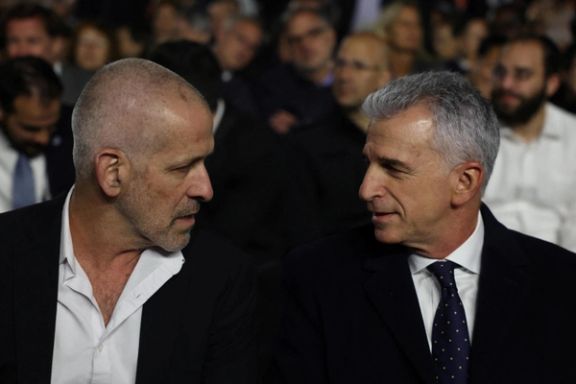
Israel's domestic intelligence agency Shin Bet on Monday accused Iran of being behind a sharp rise in attempts to recruit Israeli citizens to kill senior officials.

Israel's domestic intelligence agency Shin Bet on Monday accused Iran of being behind a sharp rise in attempts to recruit Israeli citizens to kill senior officials.
The strategy began around a decade ago but has been stepped up in the wake of the October 7 attack on Israel and especially during the latest escalation between Iran and Israel, the agency said in a statement on Monday.
“In recent weeks, the Shin Bet has detected a significant rise in Iran’s efforts to advance assassination attacks against targets in Israel,” the Shin Bet said.
Iranians are working to recruit Israeli citizens online including through job search engines as well as finance and crypto currency sites, the agency added
Israelis have been offered sizable payments for tasks such as burying money and phones in various places in Israel, distributing flyers and setting fire to vehicles, it added.
Several assassination plots had reached very advanced stages, the Shin Bet said, without elaborating.
Earlier this month, Shin Bet announced the arrest of an Israeli citizen Moti Maman who was smuggled into Iran twice and was allegedly tasked with helping to assassinate the Israeli prime minister, defense minister, or head of the Shin Bet.
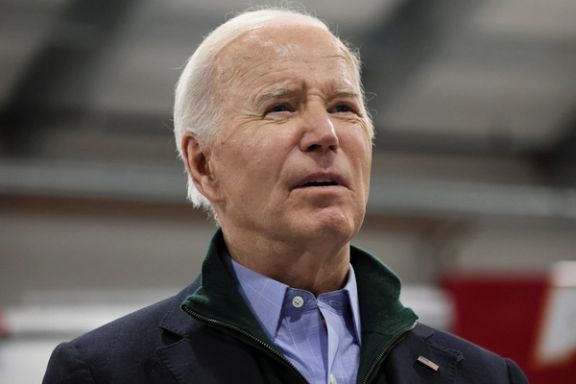
A hardline newspaper in Tehran has raised the issue of President Joe Biden becoming a “legitimate” target after he leaves office, due to the US role in the Israeli plot to assassinate “leaders of the resistance.”
The ultra-hardline Farhikhtegan newspaper wrote on Monday: "The Biden administration has played a central role in both the security planning of resistance leaders' assassinations and in arming the Zionists." It then posed the question: "Will he, too, become a legitimate target for the resistance after his term ends?"
The newspaper also depicted Biden in a caricature wearing diapers, either mocking him for his age or suggesting fear.
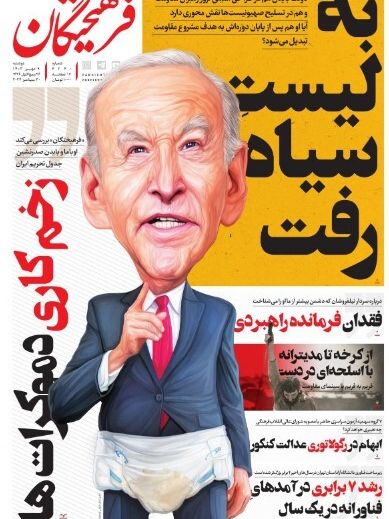
On Sunday, Iran's foreign minister Abbas Araghchi also condemned the US. "The United States is a partner in this crime and can in no way distance itself from this reality. The blood of the martyrs in this incident will not go unanswered, and we will certainly stand by Lebanon."
Farhikhtegan, representing the views of the Paydari party, which opposes any nuclear agreement and normalization with the West, argued that Americans typically pay their bills throughout their lives, but in the Middle East, they are escaping the cost of their pro-Israel policies. It claimed that since January, when large-scale attacks on US forces in Iraq and Syria ceased, Washington has avoided consequences for its actions.
"If Washington is truly concerned about unintended harm to its military personnel in the region due to Tel Aviv's rogue actions, greater control over the Zionists' misuse of American weapons would effectively rein in the regime. However, US officials have not only failed to act but have also supported the assassination of Hezbollah's Secretary-General in Lebanon," Farhikhtegan wrote.
Also on Monday, the hardline Kayhan newspaper, backed by the Supreme Leader’s office, called for using “surprise weapons” against Israel. Kayhan wrote: "The brutal attack by the Zionist regime on the Hezbollah leadership meeting, and the audacity of this regime in martyring Nasrallah, have doubled the necessity for a firm, heavy, and strong response to its madness and aggression."
The newspaper suggested targeting military supplies headed to Israel on the high seas or launching stronger attacks against Israeli air bases to cripple its primary weapon, the air force. In conclusion, Kayhan emphasized that "Netanyahu must know that Iran and the Axis of Resistance are prepared for any scenario," adding: "In this game of courage, we will not step aside. Perhaps it is time to use weapons that will certainly surprise Israel."
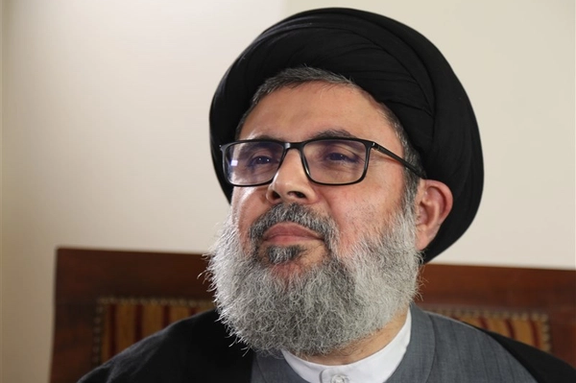
Hashem Safieddine, a prominent figure in Hezbollah's leadership, has been named by the group's executive council as the successor to Hassan Nasrallah as Secretary General, according to sources cited by Al-Arabiya on Sunday.
Nasrallah was killed in his highly secure underground headquarters, built under a complex of six buildings in the heart of Dahieh, the southern suburbs of Beirut, in a massive Israeli airstrike on Friday. He reportedly died of suffocation in an unventilated bunker, which is why his body was recovered intact from the rubble.
Safieddine (Safi Al-Din), a cousin of Nasrallah, was notably one of the senior leaders who were not present at the site of the strike that killed several top Hezbollah commanders.
Hashem Safieddine, born in 1964 in Deir Qanoun en-Nahr, a village near Tyre in southern Lebanon, studied theology alongside Hassan Nasrallah in Najaf, Iraq, and Qom, Iran—both major centers of Shia religious education. They became members of Hezbollah in its formative years.
A senior figure within Hezbollah, Safieddine heads the group’s executive council. His family is well-regarded in Shia circles and includes several religious scholars and politicians. His brother, Abdullah, represents Hezbollah in Iran, and his son Redha is married to the daughter of the late Qasem Soleimani, the Iranian general killed in a US drone strike in 2020.
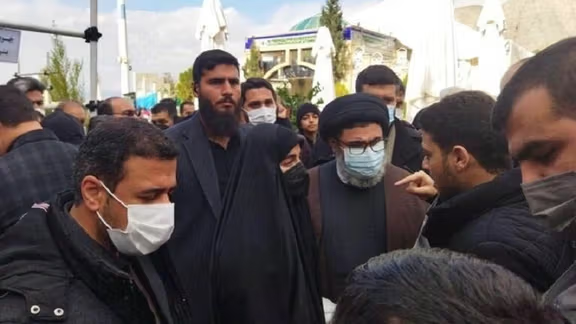
Apart from his relation to Soleimani, Safieddine is known to have strong relations with the Islamic Republic, where he received his religious training. He was indeed "chosen" by Hezbollah's Iranian sponsors as Nasrallah's successor a long time ago, a 2008 report by London-based newspaper Shargh al-Awsat said, citing a former senior Hezbollah commander.
Safieddine holds significant influence within Hezbollah, serving on both the Shura Council and as the head of the Jihad Council. The US and Saudi Arabia have designated him as a terrorist and imposed sanctions, including asset freezes, against him.
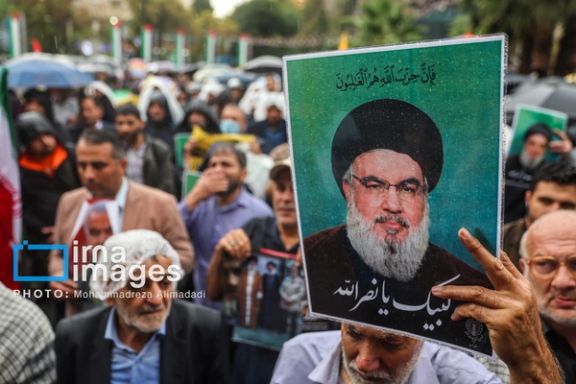
With the world now looking ahead to a future for Lebanon and the Middle East without long-time Hezbollah leader Hassan Nasrallah, many are hopeful for a brighter outlook for the country and the region.
Hanin Ghaddar, a Friedmann Senior Fellow in The Washington Institute, said Israel’s assassination of long-time leader “constitutes a shattering moment for the group that could alter the Lebanese political landscape as well as dynamics across the region”.
His death was the culmination of a 10-day campaign by Israel which had assassinated the group’s top leadership and infiltrated its communications systems while dismantling masses of its military infrastructure.
“On paper at least, replacing Nasrallah will not be difficult, and Hezbollah will take up the task alongside Iran’s Islamic Revolutionary Guard Corps (IRGC),” said Ghaddar, with likely successors including deputy leader Naim Qassem and executive council head Hashem Safieddine, Nasrallah’s nephew.
But she says that on a deeper level, "replacing the charismatic longtime leader will be very difficult”.
“He has become inseparable from the group’s brand, and is identified with successes such as Israel’s withdrawal from Lebanon in 2000 and the perceived summer 2006 “divine victory” against Israel,” she added.
Hezbollah’s sponsor, Iran, now has two options, to escalate the situation or to back down, containing its biggest proxy’s losses. That may involve taking a US-France led truce but after the failings of the UN Resolution 1701 in 2006, what Israel will be willing to accept remains in question.
She says it is the chance for the Lebanese Armed Forces to pull back control now that Hezbollah has been seriously curtailed. “But the LAF itself must answer to an independent Lebanese government, not one in thrall to Hezbollah,” she added. “A post-ceasefire Lebanon must above all be anchored in state sovereignty and independence.”
Iranian-born Karim Sadjadpour, a senior fellow at the Carnegie Endowment and adjunct professor at Georgetown, agreed that the assassination “is hugely consequential for the Middle East”.
Writing on X, he said: “Hezbollah is the crown jewel of the Islamic Republic of Iran-the one effective enterprise Iran’s revolutionaries have built since 1979-and Nasrallah has been crucial to Iran’s power expansion.
“Arab Hezbollah has been Persian Iran’s bridge to the five failing Arab states-Lebanon, Syria, Yemen, Iraq, and Gaza-that Tehran has been dominating. Iran provides the resources, but it was often Hezbollah, under Nasrallah’s leadership, that set up and trained these proxies.”
While his death will not change the course of Iran’s mission to annihilate the Jewish state, It has thrown Iran’s supreme leader, Ali Khamenei into “a dilemma of his own making”, he says.
“By not responding strongly, he keeps losing face. By responding too strongly, he could lose his head. Like all dictators, Khamenei wants to be feared by his people. These humiliations will fuel talk about succession in Tehran.”
While Nasrallah’s death is huge, he says the true impact will take years to assess. “The key to change in the Middle East remains a government in Iran whose organizing principle is not revolutionary ideology (‘Death to America, Death to Israel’), but Iran’s national and economic interests.”
Gabriel Noronha, a former official in the Trump administration, emphasized the importance of Israel continuing its efforts to dismantle Hezbollah. He noted that alongside the war objectives of returning the 101 hostages held in Gaza and destroying Iran-backed Hamas, Prime Minister Benjamin Netanyahu's government has also prioritized the return of the 63,000 Israelis displaced from the north to their homes.
“Israel should ignore calls for urgent de-escalation from weak-kneed Western leaders who know nothing of victory and are stewards of decline,” he wrote on X.
“Israel should instead press their clear advantage to decimate as much of Hezbollah as they desire - and stop when they wish. And if Iran is foolish enough to strike Israel from its territory, appropriate response targets should include the IRGC headquarters, MOIS headquarters, and nuclear sites - particularly clandestine sites and those associated with weaponization activity.”
After nearly one year of Hezbollah’s bombardment of northern Israel in the wake of the Hamas invasion on October 7, Israel is finally pushing back on the US’s diplomatic approach. On Sunday, there was confirmation from Israeli officials of the military having begun limited incursions into southern Lebanon.
“The Islamic Republic’s shield of Hezbollah has been torn through like rice paper. The Axis of Resistance is reeling and off-balance,” Noronha said, while calling for more sanctions on Iran along with tougher military pressure on Hezbollah.
Michael Singh, head of the Washington Institute, warned that Iran’s policy of illegally flooding Lebanon with arms, undermining its sovereignty and using it as a shield against retaliation with no regard for the lives or interests of the Lebanese people, “may have finally run its course”, offering a brighter future for the country whose capital was once known as the Paris of the Middle East.
But while Hezbollah may have been markedly weakened, offering the chance to Lebanon for a future beyond the grips of Tehran, Yemen expert Thomas Juneau, a professor at the University of Ottawa and former department of defense analyst, warned that this may merely see a passing of the baton to Iran’s Yemeni proxy. The Houthis have become ever more powerful in the last year amid the blockade of the Red Sea region.
Since November, the Houthis have targeted commercial shipping in a bid to force a ceasefire in Gaza, initiated by Iran’s Khamenei. While it aimed to target Israeli-linked vessels, it has however, seen dozens of international seamen taken hostage and international vessels targeted in drone and missile attacks.
“With Nasrallah confirmed dead and Hezbollah suffering so many losses (and Hamas even more), expect the Houthis to become even more prominent as a key Iranian partner. This matters, especially as Houthis are possibly the least risk averse member of the 'Axis of resistance',” Juneau warned on X.
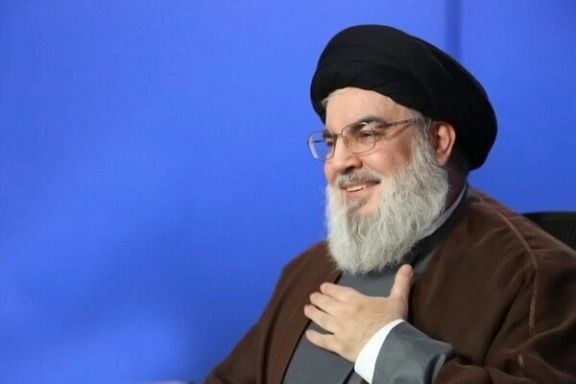
Hezbollah leader Hassan Nasrallah's death has sparked reactions across Iran's government-controlled press, with conservative, hardline, and reformist newspapers offering their differing perspectives.
The conservative newspaper Jomhouri Eslami condemned Israeli Prime Minister Benjamin Netanyahu, likening him to historical figures such as Genghis Khan and Hitler. The paper also criticized the United Nations for allowing a "war criminal" to address the General Assembly, accusing it of giving Netanyahu a platform to "distort history" and make "false claims" in his defense.
Jomhouri Eslami called for Netanyahu’s prosecution at the International Criminal Court (ICC), noting that governments worldwide, along with the ICC, recognize him as a “war criminal.” The editorial urged for “decisive” international action, and stated that governments should jointly “seek justice to prevent further atrocities.”
On September 27, the Israel Defense Forces announced air strikes on Hezbollah's main headquarters in Beirut, in an operation aimed at assassinating Hassan Nasrallah. The following day, Hezbollah confirmed his death.
Vatan-e Emrooz, a hardline daily, focused on what it saw as the consequences of inaction following the earlier assassination of Hamas leader Ismail Haniyeh. In a commentary titled "Escape from War, an Inevitable War," columnist Hamid Malekzadeh argued that Israel’s actions were a result of two factors: confidence in Western support, particularly from the US, and a lack of political will in Tehran to respond effectively to hostile actions against Iran and its allies.
Malekzadeh criticized Iran’s restraint after Haniyeh’s death, describing it as a “misinterpretation of diplomacy” that led to inaction. He contended that Iran should have issued a “firm ultimatum” to Israel, rather than engaging in what he called an “ineffective policy of restraint.” The columnist concluded that Israel’s killing of Nasrallah reflected the failure of this approach and underscored the necessity of internal unity and preparedness for conflict in international relations.
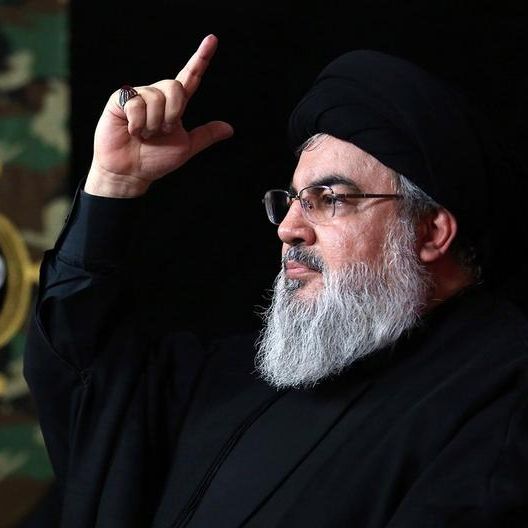
The IRGC-affiliated Javan newspaper reported on Hezbollah’s official response to Nasrallah’s death, stating that the group confirmed his martyrdom 18 hours after the attack in Beirut’s Dahiyeh. It said Hezbollah’s statement emphasized that the leadership remains committed to continuing its "jihad" against Israel and supporting Gaza and Palestine as confirmed by Supreme Leader Ali Khamenei.
Kamyar Behrang, journalist told Iran International that "There is a significant difference between Khamenei's message regarding the death of Hassan Nasrallah and his previous messages. In January 2020, after the killing of Qasem Soleimani, Ali Khamenei explicitly referred to hard revenge in his message. But today, like a religious leader, he only issued a call for jihad."
In contrast to hardline stances, the moderate reformist daily Ham-Mihan cautioned against the dangers of media-driven hype and “raising unrealistic expectations.” The newspaper stressed that pushing for “military confrontation” or creating the perception that war is the only option would not benefit the country or its leaders.
It called for calm, measured policy-making in foreign affairs, warning that either “unfulfilled demands” would lead to “public disappointment” or the country would be forced into a “weak negotiating position,” with “predictable negative outcomes.” Ham-Mihan also pointed out that Israel, aside from its attack on Iran’s embassy in Damascus in April, has attempted to distance itself from direct actions against Iran. The paper warned of the risks of escalating regional tensions, as Israel’s “ultimate goal is to involve global powers in the conflict, changing the dynamics in its favor.”
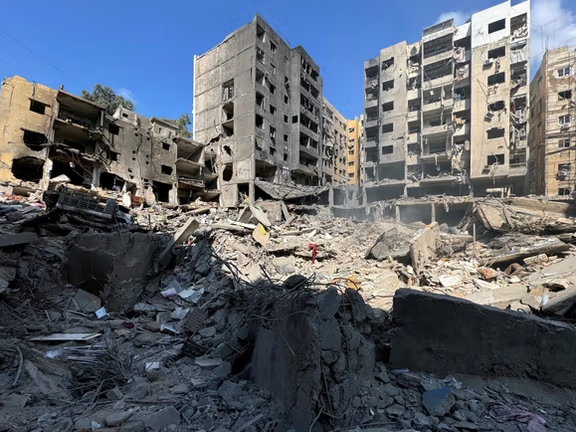
A Lebanese security source says an Iranian informant tipped off Israel about the whereabouts of Hezbollah leader Hassan Nasrallah before his assassination Friday.
Nasrallah was killed in his highly secure underground headquarters, built under a complex of six buildings in the heart of Dahieh, the southern suburbs of Beirut, in a massive Israeli airstrike on Friday.
Using intelligence from an Iranian mole to ensure his presence before launching the deadly attack, “the Israelis went all out; they didn't want to miss their target," Le Parisien quoted the unnamed Lebanese security source as saying.
According to the source, the Iranian infiltrator informed the Israelis about the imminent arrival of the Shiite leader on Friday afternoon of Friday, a few hours before the strikes.
Israel’s F-35s, equipped with bunker-buster bombs, were reportedly waiting in Lebanese airspace for the target to arrive at the command center.
According to Le Parisien, Nasrallah arrived at his command center for an emergency meeting along with a commander of IRGC’s extraterritorial Quds Force regiment, shortly after the funeral of Mohamed Hussein Srour, a Hezbollah drone unit commander killed in an airstrike the day before.
Twelve other commanders were present for the emergency meeting with Nasrallah. Iran has confirmed the death of Brigadier General Abbas Nilforoushan, the deputy commander of the Revolutionary Guard for operations but he was not a member of IRGC-Quds Force.
The Israeli military waited until all were gathered in the secure underground room where Hezbollah used to plan its military operations before giving the order to strike. In total, Israeli F-35s dropped six two-ton bombs.
"This is the largest attack we've seen since 2006," the same security source said. The explosion was heard as far as downtown Beirut, and a thick cloud rose over Hezbollah’s headquarters. Only rubble remains in a giant 30-meter-deep crater. Two neighboring buildings were also destroyed.
Since the killing of the long-time Hezbollah leader and the decapitation of its command, the organization has gone silent. A report by the New York Times said Sunday that Iran’s immediate priority is to support Hezbollah regroup, including naming a successor, establishing a new command structure, and rebuilding a secure communications network.
Meanwhile, Israel continues to pound Hezbollah's military infrastructure as it strangles the organization before it has time to regroup.